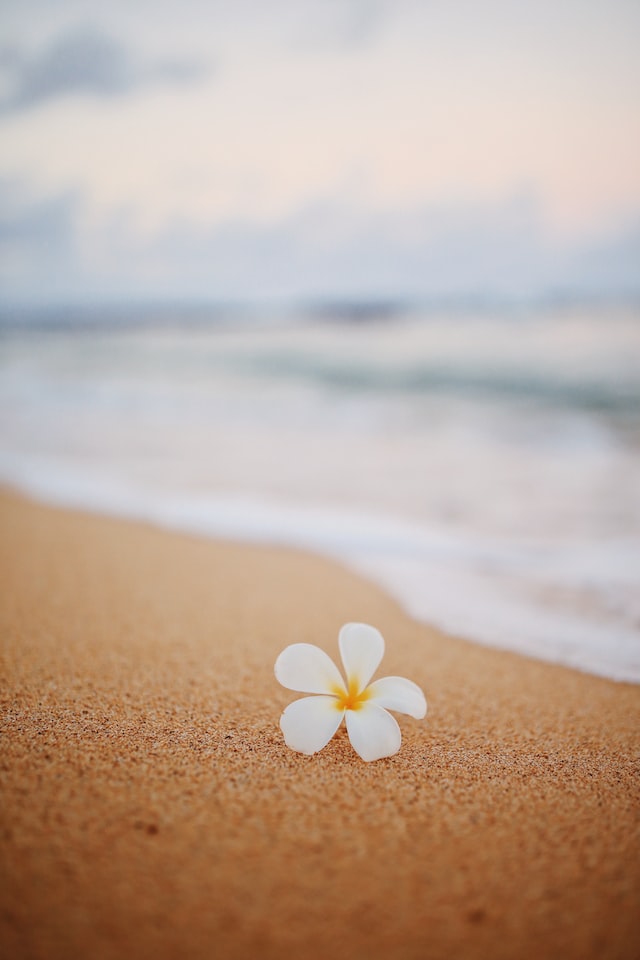“Hoʻoponopono” is defined in the Hawaiian Dictionary as:
(a) “To put to rights; to put in order or shape, correct, revise, adjust, amend, regulate, arrange, rectify, tidy up make orderly or neat, administer, superintend, supervise, manage, edit, work carefully or neatly; to make ready, as canoemen preparing to catch a wave.”
(b) “Mental cleansing: family conferences in which relationships were set right (hoʻoponopono) through prayer, discussion, confession, repentance, and mutual restitution and forgiveness.”
Literally, hoʻo is a particle used to make an actualizing verb from the following noun. Here, it creates a verb from the noun pono, which is defined as: “…goodness, uprightness, morality, moral qualities, correct or proper procedure, excellence, well-being, prosperity, welfare, benefit, true condition or nature, duty; moral, fitting, proper, righteous, right, upright, just, virtuous, fair, beneficial, successful, in perfect order, accurate, correct, eased, relieved; should, ought, must, necessary.”
Ponopono is defined, then, as “to put to rights; to put in order or shape, correct, revise, adjust, amend, regulate, arrange, rectify, tidy up, make orderly or neat.”
So hoʻoponopono can be translated literally as “to make right” or “to make good”.
In 1976 Morrnah Simeona, regarded as a healing priest or kahuna lapaʻau, adapted the traditional hoʻoponopono of family mutual forgiveness to the social realities of the modern day. For this she extended it both to a general problem solving process outside the family and to a psycho-spiritual self-help rather than group process.
Simeona’s vision of ho’oponopono is influenced by her Christian (Protestant and Catholic) education and her philosophical studies about India, China and Edgar Cayce. Like Hawaiian tradition she emphasizes prayer, confession, repentance, and mutual restitution and forgiveness. Unlike Hawaiian tradition, she describes problems only as the effects of negative karma, saying that “you have to experience by yourself what you have done to others.” But that you are the creator of your life circumstances was common knowledge for the people of old as “things we had brought with us from other lifetimes.” Any wrongdoing is memorized within oneself and mirrored in every entity and object which was present when the cause happened. As the Law of Cause and Effect predominates in all of life and lifetimes, the purpose of her version is mainly “to release unhappy, negative experiences in past reincarnations, and to resolve and remove traumas from the ‘memory banks’.”[31] Karmic bondages hinder the evolution of mind, so that “(karmic) cleansing is a requisite for the expansion of awareness”.[32] Using her 14-step-process would dissolve those bondages.[33] She did not use mantras or conditioning exercises.
Her ho’oponopono teachings include: there is a Divine Creator who takes care of altruistic pleas of Men; “when the phrase ‘And it is done’ is used after a prayer, it means Man’s work ends and God’s begins.” “Self-Identity” signifies, e.g. during the hoʻoponopono, that the three selves or aspects of consciousness are balanced and connected with the Divine Creator. Different from egoistic prayers, “altruistic prayers like hoʻoponopono, where you also pray for the release of other entities and objects, reach the Divine plane or Cosmos because of their high vibrations. From that plane the Divine energy or “mana” would come,” which would transform the painful part of the memory of the wrong actions in all participants to “Pure Light”, on whatever plane they are existing; “all are set free”. Through this transmutation in the mind the problems will lose their energy for physical effects, and healing or balancing is begun. In this sense, Simeona’s mana is not the same as the traditional Polynesian understanding of mana.
Pacifica Seminars, founded by Morrnah Simeona, started the first Ho’oponopono seminars in Germany. Seminars are still held on a regular basis in Germany, Poland, France, and Denmark.
After Simeona’s death in 1992, her former student and administrator, Ihaleakala Hew Len, co-authored a book with Joe Vitale called Zero Limits[41] referring to Simeona’s Hoʻoponopono teachings. Len makes no claim to be a kahuna. In contrast to Simeona’s teachings, the book brings the new idea that the main objective of Hoʻoponopono is getting to the “zero state — it’s where we have zero limits. No memories. No identity. ” To reach this state, which Len called ‘Self-I-Dentity thru Ho’oponopono’, includes using the mantra, “I love you. I’m sorry. Please forgive me. Thank you.” It is based on Len’s idea of 100% responsibility, taking responsibility for everyone’s actions, not only for one’s own. If one would take complete responsibility for one’s life, then everything one sees, hears, tastes, touches, or in any way experiences would be one’s responsibility because it is in one’s life. The problem would not be with our external reality, it would be with ourselves. Total Responsibility, according to Hew Len, advocates that everything exists as a projection from inside the human being.
Joe Vitale, Author (Zero Limits).
Zero Limits: The Secret Hawaiian System for Wealth, Health, Peace, and More (Ho’oponopono).
Book a session with me today and let me help you solve that lingering problem within your life. Learn how you can apply Ho’oponopono in your day to day activities throughout your life.
